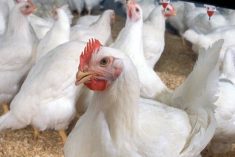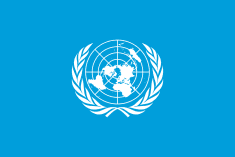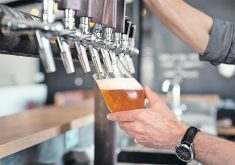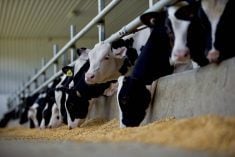PARIS, Sept 20 (Reuters) – Widespread showers over the past week in Western Europe boosted rapeseed crop development after a dry and hot summer, but the drought prompted farmers to sow less of the oilseed than initially planned, analysts said.
Rapeseed, mainly used to make vegetable oil, biofuel and animal feed, traditionally kicks off the sowing season in Europe and the final area tends to impact those of other grains sown at a later stage in the season.
“The rains were keenly awaited. It finally rained enough for all rapeseed (crops) to grow, whatever the conditions, even the most critical,” Fabien Lagarde from French oilseed technical centre Terres Inovia, said.
Read Also

CBOT Weekly: China, shutdown guiding the market
The United States grain and oilseed markets are currently dominated by two factors, said Ryan Ettner, broker with Allendale Inc. in McHenry, Ill. Ettner said those are the absence of a trade deal with China and the ongoing United States government shutdown.
France, which competes with Germany for the position of top EU rapeseed grower, experienced one of its driest summers on record this year. The average rainfall in France between July 1 and Sept. 10 was the lowest since 1959, forecaster Meteo France said.
Extremely dry weather in August and September in France meant some sowings did not take place and the final area could end up slightly lower than last year whereas they had been expected to be higher, he said.
“We were close to a new catastrophe,” a French oilseed trader said. “The rain arrived on time but the delays in crop development expose plants to more risk like autumn pests, phoma (disease) and/or freezing. Weather in the coming months will be decisive.”
French farmers sowed rapeseed on 1.5 million hectares last year, up 1 percent on the previous year, official data showed. The final 2016 harvest fell more than 12 percent to 4.7 million tonnes due to heavy rainfall in the spring which also hit other crops.
In Germany, rapeseed plantings have largely been completed on schedule and winter wheat and grain sowings are also underway in a normal timeframe despite recent dry weather.
“The dryness was not too bad and sowings have been going pretty well,” one German grains analyst said. “We had rain this week which will be positive for grain sowings.”
It was too early for precise estimates in the EU’s second-largest grain producers but analysts did not expect major changes in individual crops to areas sown last year.
“It is another year in which planting decisions are difficult,” the German analyst said. “There is no single crop looking especially price-attractive compared to others.”
In Britain, sowings were largely complete and expected to decline for the fifth consecutive season.
The diminished effectiveness of herbicides and restrictions on the use of insecticides known as neonicotinoids have made the crop less attractive, Guy Gagen, chief arable advisor at the National Farmers Union, said.
“Something has fundamentally changed. It has had its ups and downs since the 1970s but this is the first time we’ve seen a prolonged downward trend,” he said.
Britain’s rapeseed area for this year’s harvest totalled around 580,000 hectares, down sharply from a peak of 756,000 hectares in 2012.














